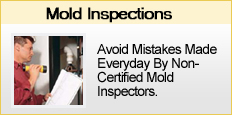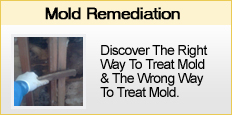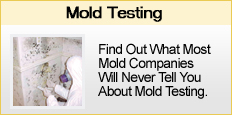Identifying Mold Allergens
 |
 |
 |
Identification of Mold Allergens
There are four levels of Allergens and the reactions that occur with each type. Some allergens will affect people in different ways. You should always consult a doctor if you or a loved one is suffering from an allergen.
Type I: Atopic & Anaphylactic Hypersensitivity
Type I Allergy is caused be an excess of IgE Antibodies. This typically results in localized acute reactions. These reactions tend to be in individuals with allergies to pollen, fungi, animal dander, house dust mites, and certain foods.
Type II: Antibody Dependent Cytotoxic Hypersensitivity
Type II Allergy is caused by over activated T-cells. These types of reactions or allergies are most often associated with a delayed response to exposure. An example would be a skin reaction to a bee sting, poison ivy, asthmatic attacks with muscle spasms as a result of airborne antigens, or from some vaccines.
Type III: Immune Complex Mediated Hypersensitivity
This generally occurs when there is a reaction between antigen and antibodies. An acute inflammatory reaction can occur, local damage from vascular permeability changes, and from phagocytes. Some examples would be serum sickness. Serum sickness in humans is a reaction to proteins in antiserum derived from a non-human animal source, occurring 4–10 days after exposure. The term serum sickness–like reaction (SSLR) is occasionally used to refer to similar illnesses that arise from the introduction of certain non-protein substances.
Type IV: Cell Mediated Hypersensitivity
This involves delayed allergic reactions to bacteria, viruses, and you guessed it….MOLD. Type IV hypersensitivity reactions are inappropriate or excessive immune reactions. These reactions form the basis of many common diseases ranging in severity from contact dermatitis to diseases such as type I diabetes and viral hepatitis. When inappropriately activated, these reactions can cause severe tissue injury and fibrosis. There are two different types of reactions capable of causing tissue injury in this way. The first, known as delayed type hypersensitivity, (DTH for short) is mediated by CD4+ helper T cells (Th-1 and Th-17 cells). The second, known as cell mediated cytotoxicity, is mediated by CD8+ T cells

